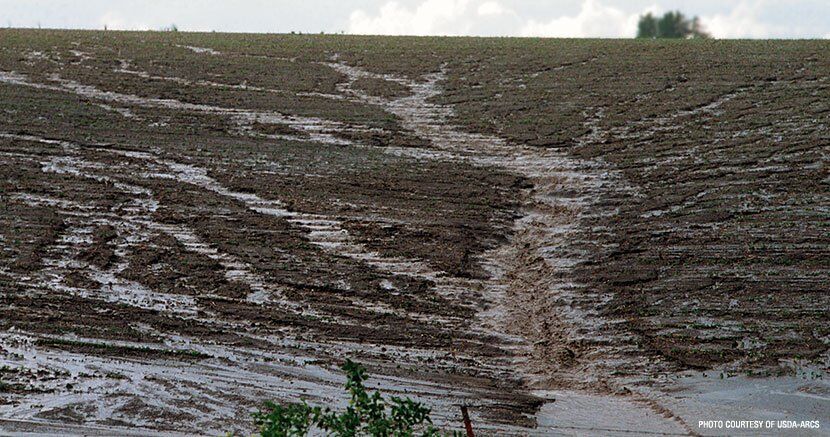Sosa: Iowa’s polluted water
March 4, 2021
When I was little, I used to love going to the streams, rivers and ponds. I could spend all day in the water and not think about it twice. Today, I’d be lying if I told you I spend any time in our rivers or lakes.
It seems that the more I learn about how things work through my civil engineering path, the more obvious it is to me how polluted our waterways have become.
I’m not going to pretend that we, as humans, have not always polluted things. We have, and we will continue to do so (hopefully at a much lesser rate than we have been). But there comes a time when we have to start asking the hard questions.
Why are we OK with letting our most vital source of life be polluted?
Most of our water pollution comes from something called nonpoint source pollution. This happens when water runs over the land or into the ground and ends up in our water sources (streams, lakes, rivers, groundwater). In its journey, water picks up lots of pollutants (many things love to dissolve in water).
Because our soils are being depleted each and every day, runoffs are starting to become a more significant issue. Eroded soils can’t hold much of the water, so the water just keeps on going down the watershed and picking up everything it can in its journey.
“Of almost 55,000 private wells in Iowa, 40 percent are contaminated with coliform bacteria.”
But it doesn’t just affect our water sources.
In the Gulf of Mexico, the number one driver of the infamous dead zone (an area full of algae bloom where barely any marine life can live) is agricultural runoffs from farms.
Number one
Iowa has been number one in the production of corn, soybeans, pork and eggs in the United States. We are quick as a state to tout these numbers.
What no one tells us is where we fall in terms of producers of pollution or the cost that it has. It is conservatively estimated that Iowa produces 68 billion pounds of animal manure each year, with 62 percent estimated to come from hog confinements.
To put it in perspective, that’s 68 times more than the entire state’s population produces per year. Now that’s a lot of poop!
And it’s a lot of poop that we don’t know what to do with. We only have so many fields to lather it on. Unlike human sewage (for the most part), we don’t treat animal manure. When it ends up in our drinking systems, it ends up raw along with all the chemicals that the animal was fed.
Cleaning our water for human consumption is a whole other issue in and of itself for another time.
It’s hard to quantify the actual cost that Iowa residents are paying. Obviously, there is the business cost, but we know they turn a profit somehow, or else they would not be in business. There is also the cost to treat the water so that it’s drinkable along with transportation, etc. Then there is the cost outside Iowa, like the cost of pollution in the Gulf Coast… for which we hold some responsibility but aren’t paying any price for it.
The solutions
The federal government does have the Clean Water Act of 1972 to keep pollutants out of our water, but, as usual, agricultural use has many exemptions from it.
Our own Iowa Department of Natural Resources (DNR) has a strategic water resource plan from 2007. Other programs help soil erosion slow down to prevent water runoffs and keep our soils healthy, though, I’m sad to say that they are not widely participated in.
Funding has always been an issue for organizations like the Iowa DNR. They understand our issues but can’t get money from our government to fix the problems.
Unfortunately, our law and policymakers at all levels of our government don’t care much. They prefer to attend to the needs of those who will donate hefty dollars into their political campaigns — donors who happen to the very source of water pollution here in Iowa.
Any talk of regulations and rules regarding the actual fixing of our water pollution problems will require the cooperation (or the coercion?) of the agricultural sector from the little farmers to the giant corporations.
Ultimately, nothing works if the big polluters keep doing what they are doing. Sooner or later, we are going to have to reckon with the fact that our resources are not forever. Once our soils are depleted, there isn’t much that will grow on them. The more our water sources are contaminated, the higher the exponential cost it will be to clean them.
The water we now take for granted won’t be here if we don’t take action to protect it. While we may disagree on how to fix our water pollution here in Iowa, I think one thing is certain: we need to hold those exacerbating the problem accountable for their actions. That includes ourselves.







